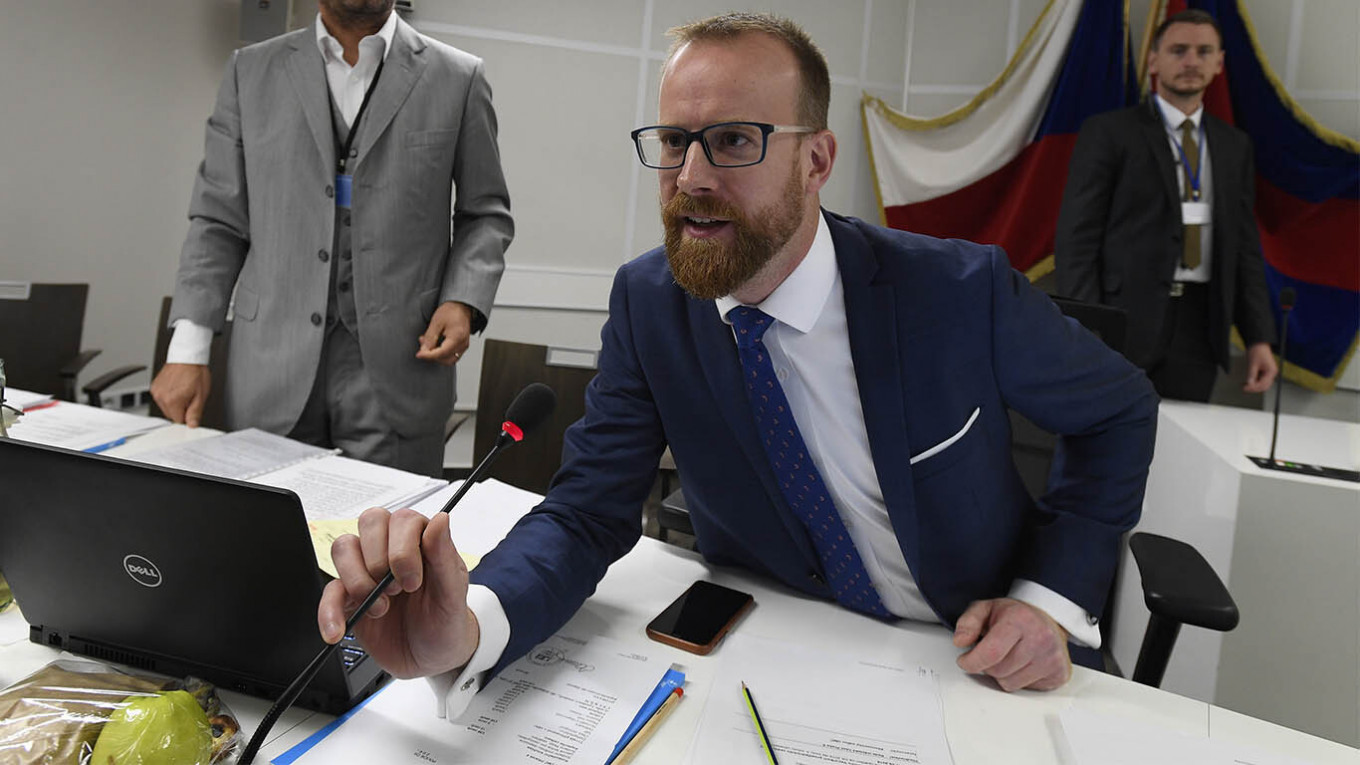
A Prague official has alleged that there was a Russian plot to “liquidate” him and two other Czech politicians, all of whom have clashed with the Kremlin over controversial Soviet memorials in the city.
Prague district 6 mayor Ondrej Kolar told Czech media late Tuesday that he was being kept at an undisclosed location after being granted police protection.
“All I can tell you is that I’ve been granted police protection. It was assigned to me because there’s a Russian here who has been given the task of liquidating me,” Kolar told the Czech Prima TV station.
“Not only me, but also Zdenek Hrib and Pavel Novotny,” he added, referring respectively to Prague’s mayor and another city official.
Prague mayor Zdenek Hrib said on Monday that he was under police protection, but stopped short of confirming Czech media reports that he had been targeted by Russia for removing a statue of a Soviet war hero.
Hrib and Kolar clashed with Moscow earlier this month after they spearheaded the removal of a controversial Cold War-era statue dedicated to Soviet general Ivan Konev, a move Russian diplomats called an “unfriendly” act of “vandalism by unhinged municipal representatives.”
Many Czechs view Konev — a hero for Russians — as a symbol of Soviet-era oppression.
The Czech weekly news magazine Respekt claimed that a Russian national using a diplomatic passport had recently arrived in Prague carrying ricin, a toxic poison that can be used as a biological weapon.
Kremlin spokesman Dmitry Peskov, speaking to reporters in Moscow on Monday, said the claims made in the Respekt report were “misinformation.”
Reacting to the developments, Czech Prime Minister Andrej Babis said Tuesday that his country, an EU and NATO member of 10.7 million people would not allow “any world power to influence our political affairs in any manner.”
The Czech foreign ministry has raised the possibility of sending the Konev statue to Russia, according to Czech media reports.
Pavel Novotny, the mayor of Prague’s southwestern Reporyje district, confirmed on Monday that he had also received police protection, without elaborating.
He also clashed with the Kremlin in November 2019 after proposing a memorial honoring Russian troops who broke ranks with the Soviet Union to collaborate with — then fight against — Nazi Germany during World War II.
